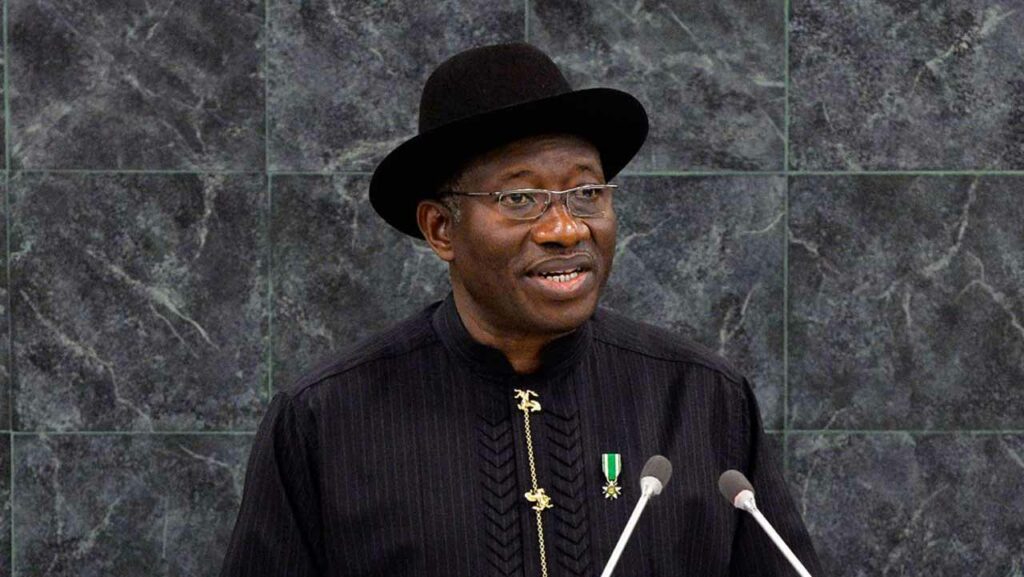A retired Nigerian Army general has revealed that a military coup was in the offing at the height of the political tension and uncertainty that enveloped the country during the short-lived Umaru Yar Adua presidency.
At some point during his presidency, Yar Adua became so sick that he was incapacitated to do his job as president of the country. He spent months outside the country receiving treatment while a subdued Goodluck Jonathan was left at the helms of the country’s affair.
Yar Adua absence and Jonathan’s lack of needed charisma, influence and political capital created a power vacuum, leading to the invocation of doctorine of necessity by some influential Nigerians which subsequently forced the national assembly to swear Jonathan in as acting president.
Kukasheka Usman, a brigadier-general disclosed that the military hierarchy led by then-Chief of Army Staff Abdulrahman Dambazau attempted a coup d’état to overthrow President Goodluck Jonathan in 2010.
The revelation further lends credence to widespread notion at the time, of reluctance of the military to support the emergence of a president from one of Nigeria’s minority ethnic groups.
It also laid bare frightening shadow of a diabolical power play that loomed over the country’s first president from a minority ethnic group.
Kukasheka Usman, who was army spokesman until his voluntary retirement in 2019, said he was part of a closed group of officers who worked with Dambazau to contain the violent overthrow that was brewing among the military top brass.
“When we visited 44 Reference Hospital, Kaduna, people were asking when is the announcement going to be made about taking over the government. I’m so happy General Akinyemi, the GOC 3 Armoured Division, is still alive. You can ask him,” Mr Usman said while speaking at the 2022 Blueprint Newspapers Annual Public Lectures and Impact Awards on Tuesday in Abuja.
Usman said Mr Dambazau did not execute the coup largely due to his vaunted patriotism and pleas of foreign diplomats.
“The international community showed concern to the extent that they had to meet with him, where he promised that he will not take over the government,” Mr Usman said.
He said some politicians were also involved in the botched coup moves, which had reached an advanced stage that only a “phone call” from Dambazau would have been enough to set things in motion.
“A simple phone call to him (General Akinyemi) to roll out the tanks and General Dambazau would have been head of state, but he resisted that temptation,” the retired brigadier-general claimed. Mr Akinyemi, a retired major-general, led the armoured division in Jos for several years.
“I am saying this with every sense of responsibility because, at that time, the same group of politicians were the ones lobbying him to take over government unconstitutionally. We have the records, and when he started writing the memoir, with due respect to him, I told him that he had to mention the names of the individuals so that posterity will remember them for who they are,” Mr Usman added.
But despite publicly admitting to being privy to the coup moves, Usman did not say whether or not Jonathan was informed about it, or how the matter was handled.
He was also silent on how the officers who prepared the purported coup and demanded a timeline of an announcement were treated, indicating Dambazau and the larger military leadership at the time might have shielded the officers from treason charges.
Discussing a coup is a criminal offence that should ordinarily attract a court-martial, as it is considered a grave threat to national security.
Whereas Usman claimed Dambazau had respect for the Nigerian Constitution and its democratic stipulations, the former chief of army staff was widely known to be contemptuous of the former president.
In 2010, Dambazau deployed Nigerian troops across Abuja and shut down the capital city’s only international airport without informing Jonathan, who was the acting president at the time. Dambazau took the action to secretly bring an ailing President Umar Yar’Adua into the country.
Yar’Adua died a few days later on May 5, 2010, and Jonathan fired Mr Dambazau in September 2010, months after he asserted full control of power.
